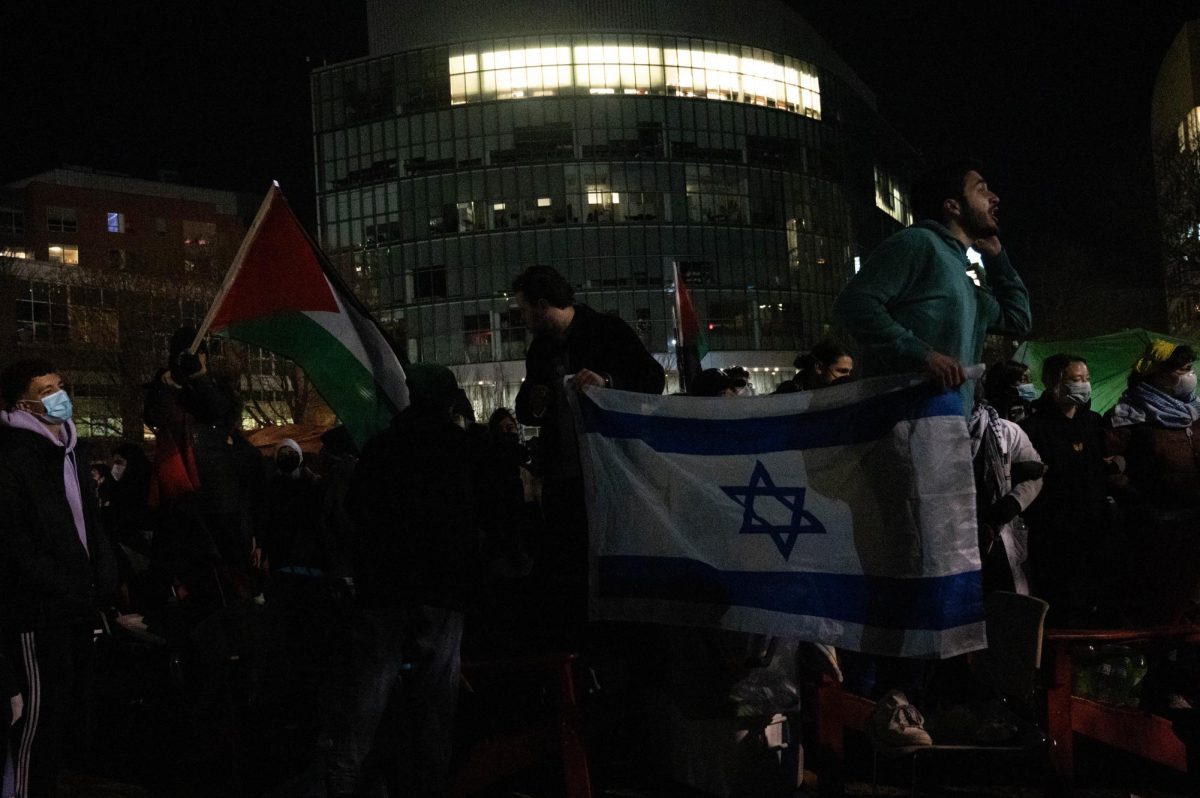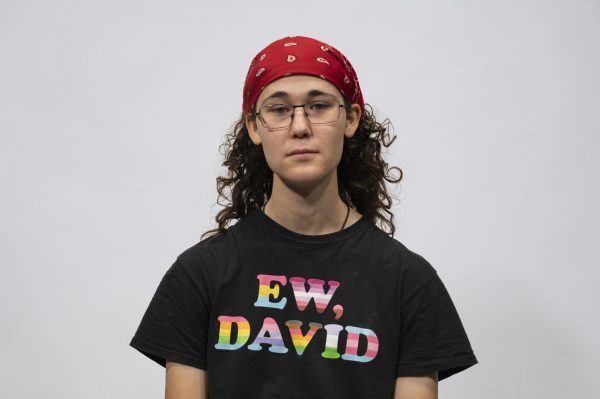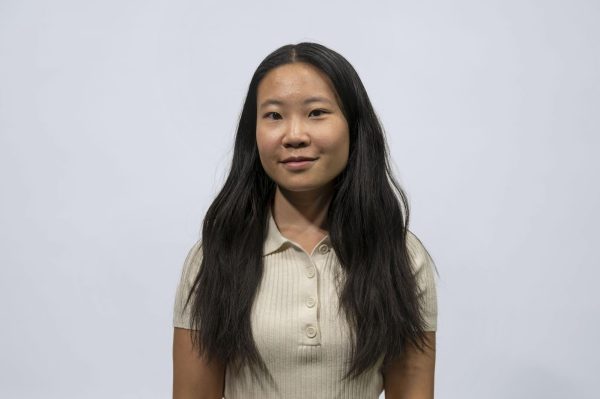There’s an old saying that a lie can travel around the world before the truth can get its boots on, and Northeastern students witnessed this phenomenon in action April 27 at 8:47 a.m.
After pro-Palestinian students established an encampment on Centennial Common the morning of April 25 and withstood an afternoon standoff with Boston police in riot gear, state police arrived early the morning of April 27. Officers made about 100 arrests, clearing what remained of the self-proclaimed “liberated zone.”
Just a half hour before arrests began at 7 a.m., Northeastern administration shared a justification for unleashing state police on peaceful protesters with the Huntington News.
“Last night, the use of virulent antisemitic slurs, including ‘Kill the Jews,’ crossed the line. We cannot tolerate that kind of hate on this campus,” the statement read in part.
Unfortunately for Northeastern administration, the justification provided was misleading enough that it bordered on factually inaccurate. Despite implying the pro-Palestinian protesters said the phrase, it was actually one of two Zionist counter protesters who said the phrase in an attempt to provoke the opposing activists into engaging with them further. Unfortunately for the encampment, the lie was able to make its way into The Boston Globe and color the perceptions of countless parents, students and faculty, as well as infiltrate national media coverage, before activists requested corrections from news outlets that uncritically included the administration’s statement.
After administration was made aware of its error, it doubled down with a second statement to The News several hours later.
“The fact that the phrase ‘Kill the Jews’ was shouted on our campus is not in dispute. The Boston Globe, a trusted news organization, reported it as fact,” Vice President for Communications Renata Nyul wrote in an email. “There is also substantial video evidence. Any suggestion that repulsive antisemitic comments are sometimes acceptable depending on the context is reprehensible. That language has no place on any university campus.”
The statement does not acknowledge that Zionist counter protesters said the antisemitic phrase, and the original Facebook statement that misattributes the phrase is still up, as of this writing.
Nyul is right to condemn the antisemitic hate speech spoken that fateful night. The phrase “Kill the Jews” is repulsive and reprehensible in any context, and such language has no place on any campus.
Where the administration and I differ, though, is that I don’t think the Zionist counter protesters who tried to provoke activists at the encampment should have to face arrest by state police or the kind of academic consequences currently looming over the heads of the arrested pro-Palestinian activists.
“The persistent use of intolerant and hurtful speech over the course of two days reached a crescendo late Friday night,” reads a third statement by the administration sent out to the Boston campus via Outlook. “Hate speech has no place in any decent society, least of all on a college campus. The identities and motivations of individuals who made reprehensible antisemitic statements—irrespective of who they are—are being investigated.”
To remain consistent in its stated desire to stamp out antisemitic hate speech in any context, the administration must either admit that it was mistaken and turn its attention to the counter protesters who violated its policies, or it can continue to repress pro-Palestinian activists and, in doing so, show just how arbitrary and selective its enforcement of the rules truly is. The university’s refusal to acknowledge that Zionist counter protestors were the ones who made the antisemitic statement flies in the face of clear-cut video evidence, and only further lays bare its hypocrisy when it claims to stand against hate.
I write this as someone who was raised as an Orthodox Jew and a Zionist. I have visited Israel several times throughout my life, and I have many friends who live there. I support the Palestinian cause because of my Jewish upbringing and Zionist education, not in spite of it. I understand the anger of pro-Israel activists, having once been in their place, but still urge them to seek out historical perspectives beyond Zionism’s self-justifying narratives and to understand that not everyone who opposes them is an antisemite.
Numerous friends of mine have suffered antisemitic harassment in Boston, and a rabbi at a synagogue down the street from my house was stabbed eight times while my little brother was attending a summer camp there.
I distinctly remember walking home with my family one Shabbos a few years ago when some college students in a passing pickup truck yelled slurs at us as they drove past. Synagogues in Boston have increased their security in recent years, and some members of my community have begun carrying firearms to protect themselves and their congregations. All this is to say: I know what antisemitism looks like. What happened on Centennial Common was not antisemitism.
The Pesach seder that took place in the encampment and the dozens of Jewish activists who organized there make any such claims of hate speech ridiculous and indefensible. I have rarely felt more safe or comfortable on campus than when I was surrounded by passionate students working towards peace, humanitarian aid and an end to Northeastern’s complicity in the war.
I would not make camp or break bread with antisemites, and I am sure that many other Jews in the pro-Palestinian movement feel the same way. We refuse to be silenced, talked over or used as props to justify the brutal atrocities and systemic marginalization of Israel’s military campaign in Gaza.
At the end of the day, Northeastern’s administration will no doubt continue obfuscating the truth, and Zionist activists will continue to dismiss criticism of Israel’s ruthless campaign in Gaza as hatred and discrimination.
But I was at the encampment, and I know what I saw.
Yaakov Aldrich is a second-year English and political science combined major. They can be reached at aldrich.y@northeastern.edu.












